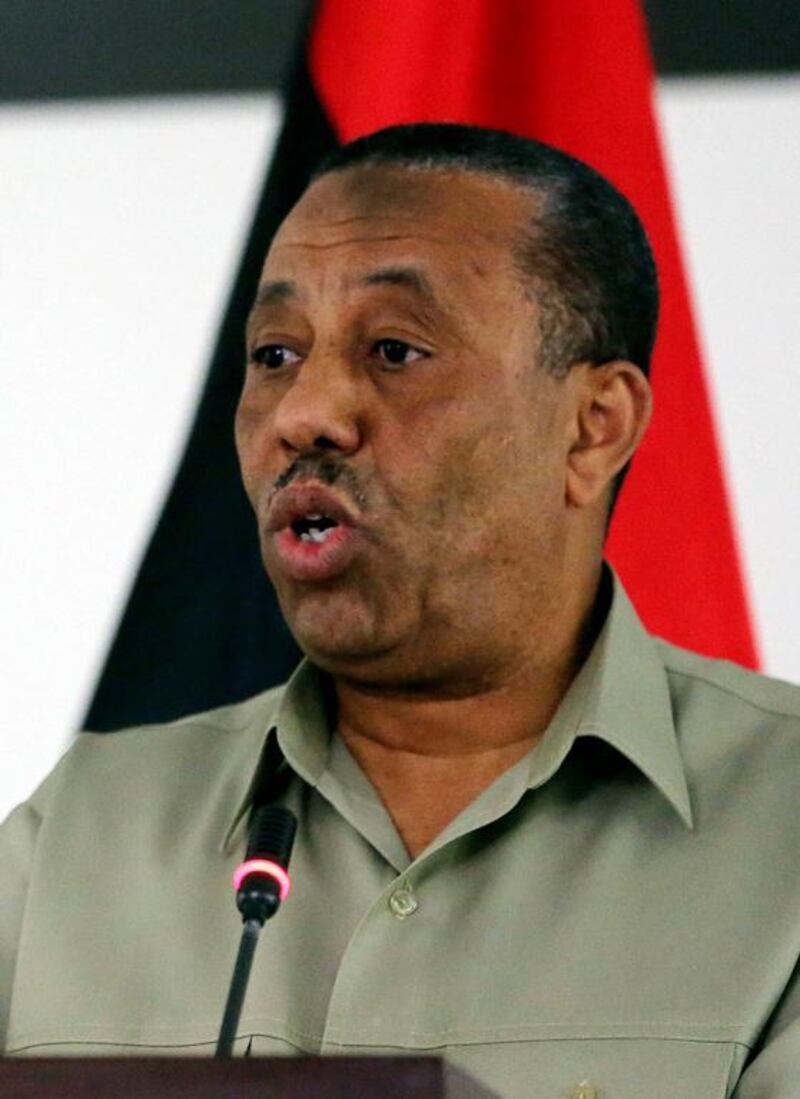BENGHAZI // Libyan irregular forces backed by helicopters clashed with Islamist militias in Benghazi yesterday in fighting that left at least 13 people dead.
Irregulars of the self-declared Libyan National Army, led by retired Gen Khalifa Haftar, shelled bases belonging to Ansar Al Sharia and another Islamist militant group in Benghazi, said Mohammed Al Hejazi, a spokesman for Gen Haftar’s forces.
The violence prompted Libya’s prime minister to order the regular military to control any armed groups, including Gen Haftar’s forces, in the eastern city, where militants often clash with the army, and assassinations and bombings are common.
Since the 2011 civil war that ousted Muammar Qaddafi, Libya has been in political turmoil and the government has been unable to impose authority over brigades of former rebels who refuse to disarm and have carved out regional fiefdoms.
Benghazi, the cradle of the Nato-backed uprising against Qaddafi, in particular has struggled to curb violence and stem attacks blamed on Ansar Al Sharia, which often operates openly despite being designated a terrorist organisation by Washington.
Libya’s army chief of staff told state television he had given no orders for any regular military units to attack bases in Benghazi.
Hours later, the prime minister, Abdullah Al Thinni, said: “We have given orders ... to intercept any force trying to enter Benghazi because they don’t have legitimacy from the state.”
The city was calmer in the afternoon after the clashes in the morning, when witnesses said at least one regular army helicopter had been used in some of the assaults on the Islamist bases.
At least four people were killed and another 30 injured in the fighting, medical sources at a local hospital said.
Mr Al Hejazi dismissed the government’s rejection of the legitimacy of Gen Haftar’s forces and said they were forcing militants from their bases into the city because the government had failed to help Benghazi.
“We’re telling them we have the legitimacy from the civilians who suffer on a daily basis from the killings targeting the police and military,” he said. “We are fighting militias who threaten stability.”
Gen Haftar, a leading figure in the anti-Qaddafi revolt, in February stirred rumours of a coup by appearing in military uniform to call for a presidential committee to be formed to govern until new elections.
It was not clear how much support he commands in the country’s nascent army, which is still in training. Tripoli’s government in February said he had no authority and threatened legal action against him.
But the government is fragile and the parliament almost paralysed by rivalries, with little progress to full democracy made since 2011. A planned new constitution is still unwritten and the country is on its third prime minister since March.
* Reuters





